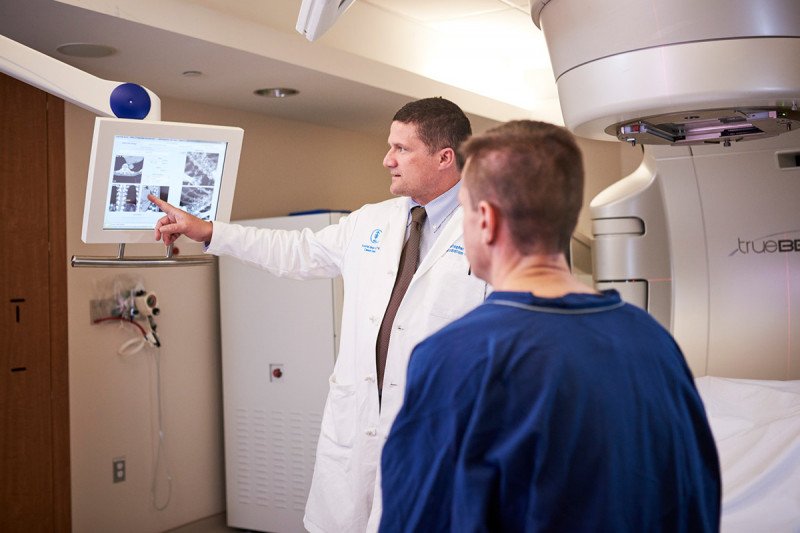
Cancer care is essential and should not be put on hold. Here at Memorial Sloan Kettering (MSK) we’ve put in place the strictest safety measures to ensure our patients continue to receive world-class cancer care in the safest environment possible. In order to preserve healthcare resources and provide exceptional care, our teams have been working together to develop new and innovative ways to treat our patients during the COVID-19 pandemic.

MSK radiation oncologists rapidly re-evaluated our rectal cancer practice policies during this public health emergency. Multidisciplinary rectal cancer experts at MSK, including radiation oncologists, medical oncologists, and surgeons, collaborated (electronically, due to the need for social/physical distancing) to establish new institutional guidelines for rectal cancer treatment during the COVID-19 pandemic. These new guidelines were recently published in Advances in Radiation Oncology by Paul B. Romesser, M.D., Radiation Oncologist, MSK, and colleagues.
Prior to the pandemic, MSK radiation oncologists commonly utilized total neoadjuvant therapy (TNT) with a strong preference for long course chemoradiation (LCCRT). After careful consideration of the risks and benefits, we have now mandated that, at MSK, until the current COVID-19 epidemic passes, all locally advanced rectal cancer patients be treated with short course radiation therapy (SCRT). This mandate benefits patients by reducing the number of exposures to other potentially infected patients and health care workers and lowering the chances that their treatment would be interrupted or terminated if they were diagnosed with COVID-19. This mandate is also in the best interest of our patient population as a whole, given decreased utilization of healthcare resources, allowing us to treat five patients instead of one in a setting in which we expect to have substantial reductions in available staff to administer treatment.
SCRT has been shown to be a non-inferior alternative to LCCRT, with multiple randomized trials demonstrating no difference in locoregional recurrence, distant recurrence, or overall survival. SCRT is delivered in 5 fractions using either 3D-CRT or IMRT to protect adjacent normal tissue.
In the setting of an ongoing pandemic, SCRT has the potential to (1) provide efficient and quality oncological care for patients, (2) significantly decrease patient exposure with repeated radiation therapy appointments for LCCRT, (3) decrease the likelihood of a patient being diagnosed with COVID-19 during treatment, (4) decrease immunosuppression by omitting concurrent chemotherapy, (5) decrease resource utilization in a setting where radiotherapy capacity may be sharply curtailed and/or reallocated, (6) provide at least partial therapy in the event that surgery and/or chemotherapy need to be delayed, and (7) reinforce federal, state, and city mandates to encourage social and physical distancing while still addressing the active cancer for each patient.
